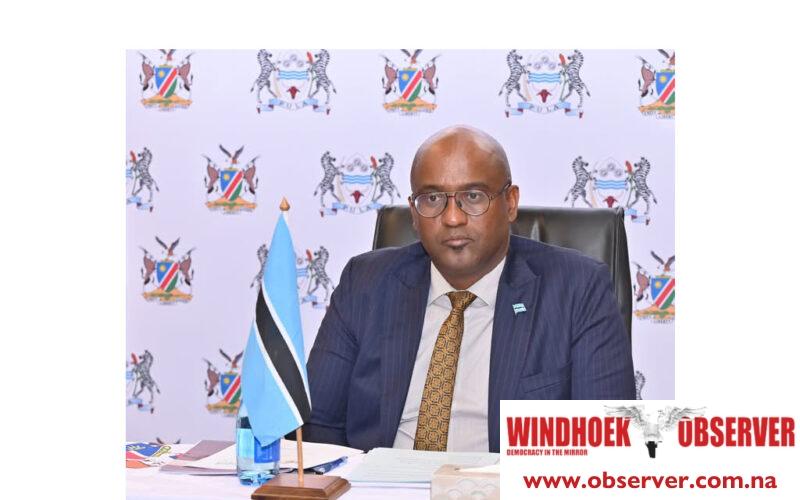Chamwe Kaira
CPCS Transcom UK Limited has submitted the Inception Report of the Feasibility Study on the Trans Kalahari Railway for review.
The report will be discussed at the August meeting of the joint ministerial committee between Namibia and Botswana.
The consultant began work on the 12-month study in April. CPCS Transcom is working with Zutari, which operates in Botswana and Namibia, as well as Bowman, a Namibian company, and other independent experts.
Botswana has proposed expanding the scope of the study to include a broader vision of the railway as the Trans-Kalahari Development Corridor.
Botswana’s Minister of Transport and Infrastructure, Noah Salakae, said the project should consider a public-private partnership model.
“An approach we must continue to encourage,” he said.
He added that the railway alone cannot generate enough revenue to justify its US$16 billion cost.
“Trans-Kalahari Railway as a standalone railway simply cannot generate enough revenue from transport economics alone to justify its staggering US$16 billion cost.”
He said the vision must be broader. “The TKDC envisions much more than rails. It is a spine for economic transformation, encompassing logistics hubs, industrial clusters, energy infrastructure, trade zones, housing, tourism nodes, and green towns that bring opportunity and prosperity to people along its path.”
Salakae said the two countries need a modern rail system that connects people and brings development.
“Botswana and Namibia need a smart rail transportation system that will pull its people from isolation, bring them close to one another, and give them work, as well as turn their quiet villages, towns and cities into thriving commercial centres and tourist destinations.”
He stressed the project must support regional integration and long-term growth.
“A project of this scale and importance must go beyond rail, it must stimulate regional integration, urbanisation, and sustainable growth from coast to coast.”
Botswana is also developing an infrastructure investment plan to support this goal.
“We are in the process of developing a Botswana Infrastructure Investment Plan aimed at upgrading and expanding our infrastructure ecosystem to unlock broader economic opportunities. Our objective is to transform and modernise infrastructure to ensure the efficient movement of goods and people, thereby enhancing service delivery. Sustainability remains central to our planning processes, considering both current and future challenges,” he said.
The Trans-Kalahari Railway will link Walvis Bay in Namibia with Gaborone in Botswana. It is expected to support regional trade and economic growth by offering a cost-effective route for goods.
The line is mainly intended to transport coal from the Mmamabula coal fields to Walvis Bay. The plan is to export around 90 million tonnes of coal each year from Botswana to India and China.




